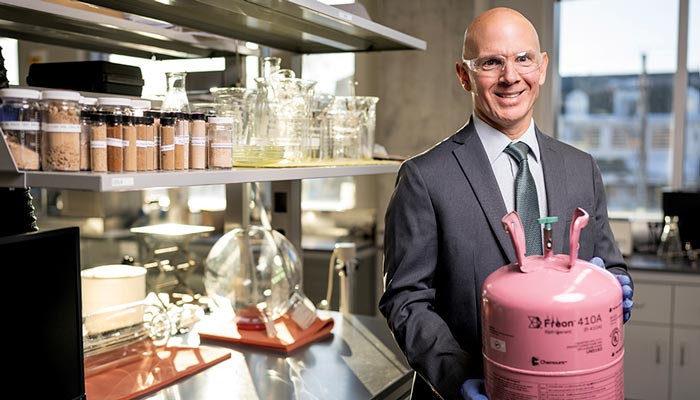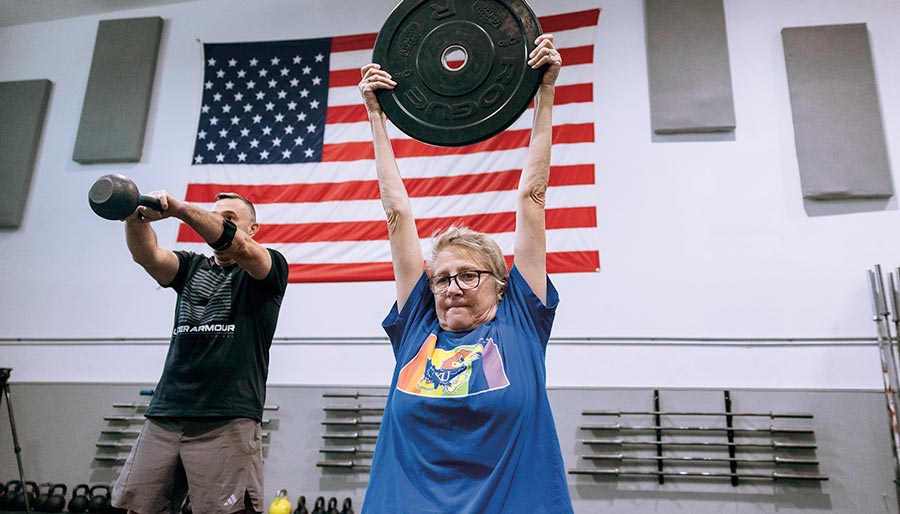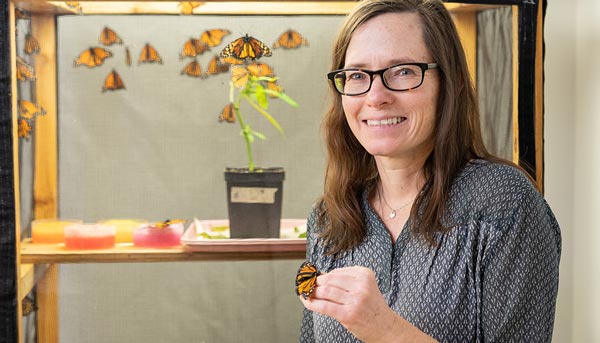Timely intervention: New center dedicated to reducing youth violence
A grant to KU is funding a new research center that will further youth violence prevention efforts in Kansas City
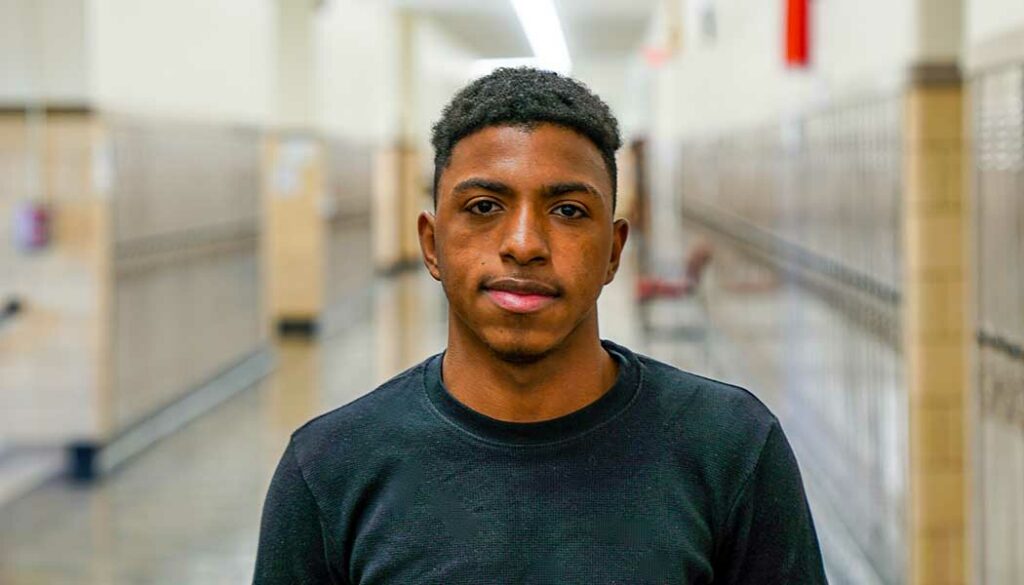
A desire to help people shapes the life that 17-year-old Travion Harris envisions after he graduates from Wyandotte High School in Kansas City, Kansas. He wants to give back to the great-aunt who is raising him after the death of his mother, improve the lives of people in his community, and apply possible service in the Marines to help people anywhere in the world.
“If I see someone hurting or needing help or struggling, I help them, and if I can’t help them, I’ll try to get someone who can,” says Harris, a Wyandotte senior and cross-country runner who recently intervened for a friend who was bullied and threatened.
A school program funded through a federal grant to KU has helped encourage Harris in his drive to help others. ThrYve, or Together Helping Reduce Youth Violence for Equity, since 2017 has united more than 40 community partners to develop programs to prevent youth violence, provide out-of-school and in-school assistance, promote college and career readiness, and help youth and families navigate systems and support.
Now the strategies developed through ThrYve have led to new funding from the Centers for Disease Control and Prevention, which has awarded KU a five-year, $6 million grant to establish one of only five federally funded national centers of excellence on youth violence prevention.
The award will provide $1.2 million annually through 2026 to fund the Youth Violence
Prevention Research Center-Kansas City (YVPC-KC). Like ThrYve, it will be led by Jomella Watson-Thompson, g’02, g’06, PhD’08, director of the Center for Service Learning at KU, associate professor of applied behavioral science, and member of the KU Center for Community Health and Development at the KU Life Span Institute.
Joining her at the new research center will be Dr. Robert Winfield, director of trauma research at the KU School of Medicine, and Jerry Schultz, PhD’92, who co-directs the Center for Community Health and Development.
The new research center will expand on Watson-Thompson’s previous studies to include additional Kansas City metro communities on both sides of the state line.
“The YVPC-KC will help us examine our youth engagement strategies and hospital-violence prevention programs,” she says. “Through community collaborations, we’re exploring how we ensure conditions in which young people—and those of us who work to support young people—can reduce risk factors for youth violence. What can we do to have more protective factors to decrease the likelihood that youth will engage in violence?”
The grant includes funding to explore community conditions, including risk and protective factors for firearm-related hospital admissions and youth homicides. According to the CDC, Black and Hispanic/Latinx youth experience disparities in violence nationally and in the Kansas City metro area. Nationwide, homicide is the second-leading cause of death for all individuals ages 15 to 24, but for Black youth in particular in that age group, it is the leading cause of death.
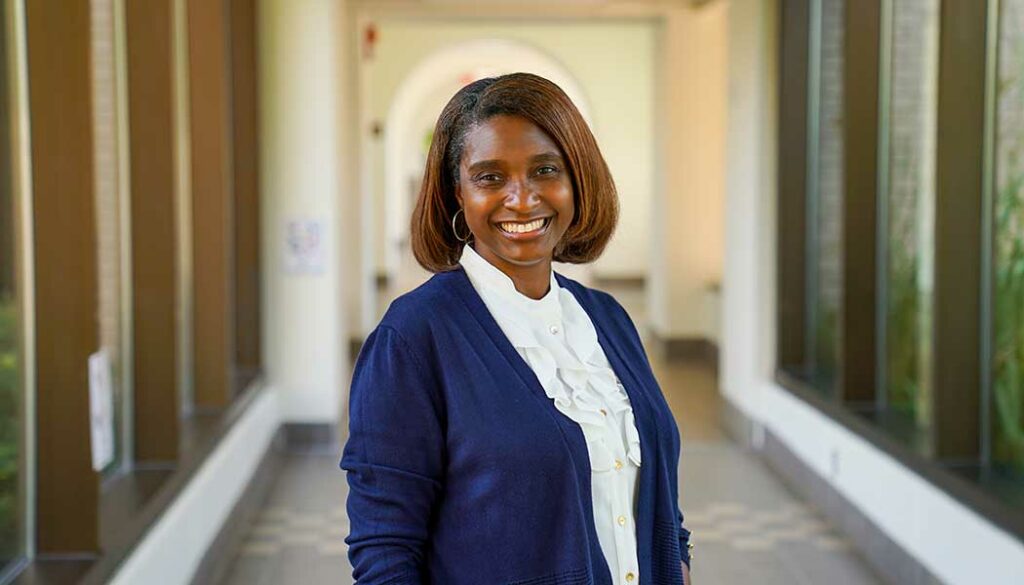

“Trauma should be approached with a public health mentality,” Winfield says. “We need to look at it from the standpoint of disease and disease prevention. When we think about trauma, over half of trauma deaths occur at the scene, so those patients never have an opportunity to make it to a trauma center. Prevention is key.”
Addressing youth violence starts with increasing protection and reducing risk, Watson-Thompson says. That’s why the new center will build on the comprehensive research she developed through ThrYve, which has worked with its community partners to address challenges contributing to youth violence and a range of other issues. One of the collaborations provides support to young victims of violence treated through The University of Kansas Health System.
The best approach to reducing youth violence looks at multiple levels of an entire system of
prevention and supports, according to Watson-Thompson.
“I often say that life doesn’t happen one problem at a time for any of us, so we need to find the ways we can provide the supports to help our young people to navigate—to support both their goals and address some of the challenges, especially as they transition to adulthood.”
Jen Humphrey, j’96, c’03, g’10, is director of external affairs at the KU Life Span Institute.
Photos by Drew Rosdahl/KU Life Span Institute
/
